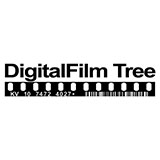|
|
Forum List
>
Café LA
>
Topic
Daisy chain camera laptop/ Backing up
Posted by Dylan
|
Daisy chain camera laptop/ Backing up June 03, 2005 10:09PM |
Hi all,
While trying to solve my awful capture problem I read a lot of posts, and came across one from my beloved Derek Mok saying that daisychaining a camera thru a Firewire drive is "bad, bad, bad." How come? Is it REALLY that bad? I know capturing that way isn't great (going fr camera to drive to computer back to drive) but is it going to fry my system? What are the other options? I have a G4 Powerbook with a single FW 800 port and two USB 1's (sigh, sigh... bought my computer in 2003).
Also, there are a lot of posts that mention the need to back up. OK, yeah, but what is the best strategy for this? I'm a fairly low volume user -- 10 minute shorts, wedding videos, etc. -- but my projects are, of course, important to ME and my occasional client. I don't have the $$ for a RAID or anything like that; am relying on seagate ATA drives. In describing a strategy, please assume I'm a moron.
Thanks so much.
D
While trying to solve my awful capture problem I read a lot of posts, and came across one from my beloved Derek Mok saying that daisychaining a camera thru a Firewire drive is "bad, bad, bad." How come? Is it REALLY that bad? I know capturing that way isn't great (going fr camera to drive to computer back to drive) but is it going to fry my system? What are the other options? I have a G4 Powerbook with a single FW 800 port and two USB 1's (sigh, sigh... bought my computer in 2003).
Also, there are a lot of posts that mention the need to back up. OK, yeah, but what is the best strategy for this? I'm a fairly low volume user -- 10 minute shorts, wedding videos, etc. -- but my projects are, of course, important to ME and my occasional client. I don't have the $$ for a RAID or anything like that; am relying on seagate ATA drives. In describing a strategy, please assume I'm a moron.
Thanks so much.
D
|
Re: Daisy chain camera laptop/ Backing up June 03, 2005 10:57PM |
Registered: 17 years ago Posts: 5,638 |
hi dylan.
you;re smart enough to ask, so you;re no moron :-)
Daisychaining
is not going to fry your system.
and if it works for you, then it works, and that;s that.
to be safe, you should leave your DV device (camera / deck) powered off when you plug it it.
leaving it powered on *could* fry your system.
if you start getting drop frame warnings when you capture, then you know there's a problem, and you know where to start.
you can get a PCMCIA card with extra FW ports that will slot into the left hand side of your powerbook.
this gives you an extra FW BUS, so no confilct between drive/device.
i used a LaCie in hte past.
[www.radcamdvd.com]
these days, on my newer powerbook i'm not bothering.
i can use the FW800 port for (some of) my drives and the FW400 port for my device. (thery use the same bus)
sometimes i DO daisychain, sometimes i use a hub.
i know, bad,bad,bad.
when it starts not to work, i'll plug in the card!
Backing up:
back up your project files. (treat them like gold!)
and any media you cant easily capture again, or recover from another source (audio files from CD for instance)
be like einstein, and do a "thaught experiment":
think about how you;d recover from a total system failure.
the most important thing you;'d need is your project file.
with that you can re-capture anything from your master tapes.
if you;ve captured media wild off a VHS, though, you WOULDNT be able to batch capture that, so either back it up to a DVD os something, or better DONT cature wild, if youcan help it.
dump to a DV tape first.
render files, waveforms and thumbnails can all be re-created so dont bother about them
if you record VO in FCP, back that up to CD, or a second drive.
photoshop documents you've laboured over: back them up
even though you might be abvle to re-source CD audio, it's much more effiecient to back that up
while a project is still active, you would probably not want to be backing all this stuff up to CDs, or DVDs.
an extra removable drive would be better, i think.
you might find those USB flash drives usefull for this.
i havent gotten into them, but there are a fair few back up / synchronise software apps out there which would make this easier
when the project is finished, THEN back up to DVD.
if it's really short, you might be able to backup your captured media as well.
(or maybe a trimmed version of it created with the media manager)
but the main thing to think about is what you would do if you had to re-visit a project from a few months back
further to this, read the recent post from derek re asset managment
[www.lafcpug.org]
cheers,
nick
you;re smart enough to ask, so you;re no moron :-)
Daisychaining
is not going to fry your system.
and if it works for you, then it works, and that;s that.
to be safe, you should leave your DV device (camera / deck) powered off when you plug it it.
leaving it powered on *could* fry your system.
if you start getting drop frame warnings when you capture, then you know there's a problem, and you know where to start.
you can get a PCMCIA card with extra FW ports that will slot into the left hand side of your powerbook.
this gives you an extra FW BUS, so no confilct between drive/device.
i used a LaCie in hte past.
[www.radcamdvd.com]
these days, on my newer powerbook i'm not bothering.
i can use the FW800 port for (some of) my drives and the FW400 port for my device. (thery use the same bus)
sometimes i DO daisychain, sometimes i use a hub.
i know, bad,bad,bad.
when it starts not to work, i'll plug in the card!
Backing up:
back up your project files. (treat them like gold!)
and any media you cant easily capture again, or recover from another source (audio files from CD for instance)
be like einstein, and do a "thaught experiment":
think about how you;d recover from a total system failure.
the most important thing you;'d need is your project file.
with that you can re-capture anything from your master tapes.
if you;ve captured media wild off a VHS, though, you WOULDNT be able to batch capture that, so either back it up to a DVD os something, or better DONT cature wild, if youcan help it.
dump to a DV tape first.
render files, waveforms and thumbnails can all be re-created so dont bother about them
if you record VO in FCP, back that up to CD, or a second drive.
photoshop documents you've laboured over: back them up
even though you might be abvle to re-source CD audio, it's much more effiecient to back that up
while a project is still active, you would probably not want to be backing all this stuff up to CDs, or DVDs.
an extra removable drive would be better, i think.
you might find those USB flash drives usefull for this.
i havent gotten into them, but there are a fair few back up / synchronise software apps out there which would make this easier
when the project is finished, THEN back up to DVD.
if it's really short, you might be able to backup your captured media as well.
(or maybe a trimmed version of it created with the media manager)
but the main thing to think about is what you would do if you had to re-visit a project from a few months back
further to this, read the recent post from derek re asset managment
[www.lafcpug.org]
cheers,
nick
|
Re: Daisy chain camera laptop/ Backing up June 04, 2005 03:39AM |
Nick's pretty much covered it all, so I'll just offer this: For backup purposes, don't sweat too much about clips, and consider render files to be garbage.
Clips that are captured from a good batch list are completely expendable. As long as you did the homework at the logging stage and have the master tapes intact, you can delete them, recapture them, move them, lose them...no big deal. I wouldn't really back up clip files unless they are non-recapturable (eg. a second-generation effect clip, a LiveType background, any type of download, anything from a non-timecoded source). QuickTime movies get corrupted and chew up a lot of space.
As for render files, they are meant to be fragile -- kept over the short run, not backed up for eternity. These suckers get corrupted very easily, so rather than give yourself headaches about trying to back them up, let them die.
Here are the items you should backup, in order of priority:
1. PROJECT FILE -- this is the brain of your project. Batch lists, editing decisions, effects...it's all there. This is the work you never, ever want to have to redo. I do a manual backup of this file every two hours in any editing session, sometimes more. I don't even trust autosave (fact is, it annoys me to have my editing interrupted by the "Autosaving project" message) -- I force myself to do the manual backup for ultimate control.
2. PROJECT ARCHIVE -- Older versions of your project file. The more you have of these, the more insurance you have. They tend to be small and easy to backup -- CDs, data DVDs, flash drives, even Zip disks will be dandy.
3. NON-TIMECODED CLIPS -- this includes clips created using Capture Now, Photoshop files, music files of any type. Note that even if you import an entire song from a CD, that file is still not timecoded. If you lose the associated media file and try to re-import the entire song from CD again, it still won't reconnect properly even if it's the same track, same CD. In other words, anything not captured from a batch list using Log and Capture is not expendable. Also remember not to just pop in a CD and import a music track from there; FCP will create a dependent clip which will lose the music information the minute the CD is removed. Always use iTunes, QuickTime Player or any equivalent to create an independent media file (AIFFs are best) of any CD music you use.
4. CLIPS. Back them up if you have the storage; don't worry if you don't.
Clips that are captured from a good batch list are completely expendable. As long as you did the homework at the logging stage and have the master tapes intact, you can delete them, recapture them, move them, lose them...no big deal. I wouldn't really back up clip files unless they are non-recapturable (eg. a second-generation effect clip, a LiveType background, any type of download, anything from a non-timecoded source). QuickTime movies get corrupted and chew up a lot of space.
As for render files, they are meant to be fragile -- kept over the short run, not backed up for eternity. These suckers get corrupted very easily, so rather than give yourself headaches about trying to back them up, let them die.
Here are the items you should backup, in order of priority:
1. PROJECT FILE -- this is the brain of your project. Batch lists, editing decisions, effects...it's all there. This is the work you never, ever want to have to redo. I do a manual backup of this file every two hours in any editing session, sometimes more. I don't even trust autosave (fact is, it annoys me to have my editing interrupted by the "Autosaving project" message) -- I force myself to do the manual backup for ultimate control.
2. PROJECT ARCHIVE -- Older versions of your project file. The more you have of these, the more insurance you have. They tend to be small and easy to backup -- CDs, data DVDs, flash drives, even Zip disks will be dandy.
3. NON-TIMECODED CLIPS -- this includes clips created using Capture Now, Photoshop files, music files of any type. Note that even if you import an entire song from a CD, that file is still not timecoded. If you lose the associated media file and try to re-import the entire song from CD again, it still won't reconnect properly even if it's the same track, same CD. In other words, anything not captured from a batch list using Log and Capture is not expendable. Also remember not to just pop in a CD and import a music track from there; FCP will create a dependent clip which will lose the music information the minute the CD is removed. Always use iTunes, QuickTime Player or any equivalent to create an independent media file (AIFFs are best) of any CD music you use.
4. CLIPS. Back them up if you have the storage; don't worry if you don't.
Sorry, only registered users may post in this forum.



 All the news now and in your digital future
All the news now and in your digital future